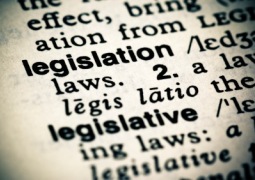
The Expropriation Bill is now before Parliament and the relevant committees that have direct or transversal constitutional mandates on it must now determine its constitutionality.
This was the business of the Portfolio Committee on Public Works and Infrastructure yesterday, particularly the policy and legal interpretation of the meaning of the term expropriation, and who and how such a process would be undertaken.
From a policy point of view, the Minister of the Department of Public Works and Infrastructure, Ms Patricia De Lille, made it clear yesterday that besides the powers vested in the president to undertake this process, relevant ministers would have a prerogative to determine how and what land would be expropriated and for what reason.
She added that the expropriation of land is but one way of addressing land reform. “It’s a mechanism that will be utilised when needed, but should not be perceived as the only one. There are many others that are currently in existence,” she explained.
In a bid to quell the controversy often associated with the bill, the representative of the department stated from the onset that the expropriation of land is a prevalent practice world-wide. It should not be considered controversial. Ms De Lille went on to refer to similar laws in the United States of America and other countries. “These laws, as with this one, are aimed at appropriating land for public good,” she said.
This implies that even in those countries, every private property is subjected to the constitutional dictates of the notion of public good. She made an example. “If there’s a disaster and the only way to fix it is for the state to appropriate private land, this law will come into force based of course on the dictates of the law which clearly stipulates such interventions and private infringements.”
The issue of equitable compensation was also raised. Ms De Lille said such remedies would be determined by the courts, who will also determine the applicability of that provision.
The bill has resulted in much public debate in all sectors of society because of the possibility that it will impact on some sectors of the economy.
The need for a coherent register of state land was raised by a member of the committee, Ms Madeleine Hicklin. “We can’t consider the allocation of land when we have no clue of how much land the state has. If this is not sorted out, the process is doomed to fail,” she contested. The minister replied: “Land register has been developed. The process is almost done.”
Ms De Lille said that according to Auditor-General’s report, what needs to be addressed “is the value of these parcels of land”. She said a determination has since been made in this regard. “Now we have agreed with the National Treasury that we should be allowed to utilise municipal valuation to determine a value of a given land.”
According to this Bill, what would happen to those who acquired land illegally, asked another member of the committee Ms Mathapelo Siwisa. The department explained that the Expropriation Bill does not deal with that, but it’s common cause that those who occupy land illegally or without any form of ownership, the remedy is to reverse such illegality.
The department added that in cases of the history of acquisitions and use that is a result of forced removal, the courts have given judgements on those cases. And we believe that those who benefitted from such acts should compensate the victims.
To give effect to the constitutional dictates of a legislative process, as stipulated in the Constitution, the committee has devised its own plan to facilitate public consultations to ensure that the public express its views on bill and take them into consideration before it’s enacted into law.
The public participation process will be preceded by an advertisement campaign calling for public comments on the bill in print and on radio, which will run in December and January respectively. Thereafter, there will be public hearings in all nine provinces. This process will ultimately have a bearing on the shape and form of the final version of the bill passed by Parliament.
Abel Mputing
24 November 2020

